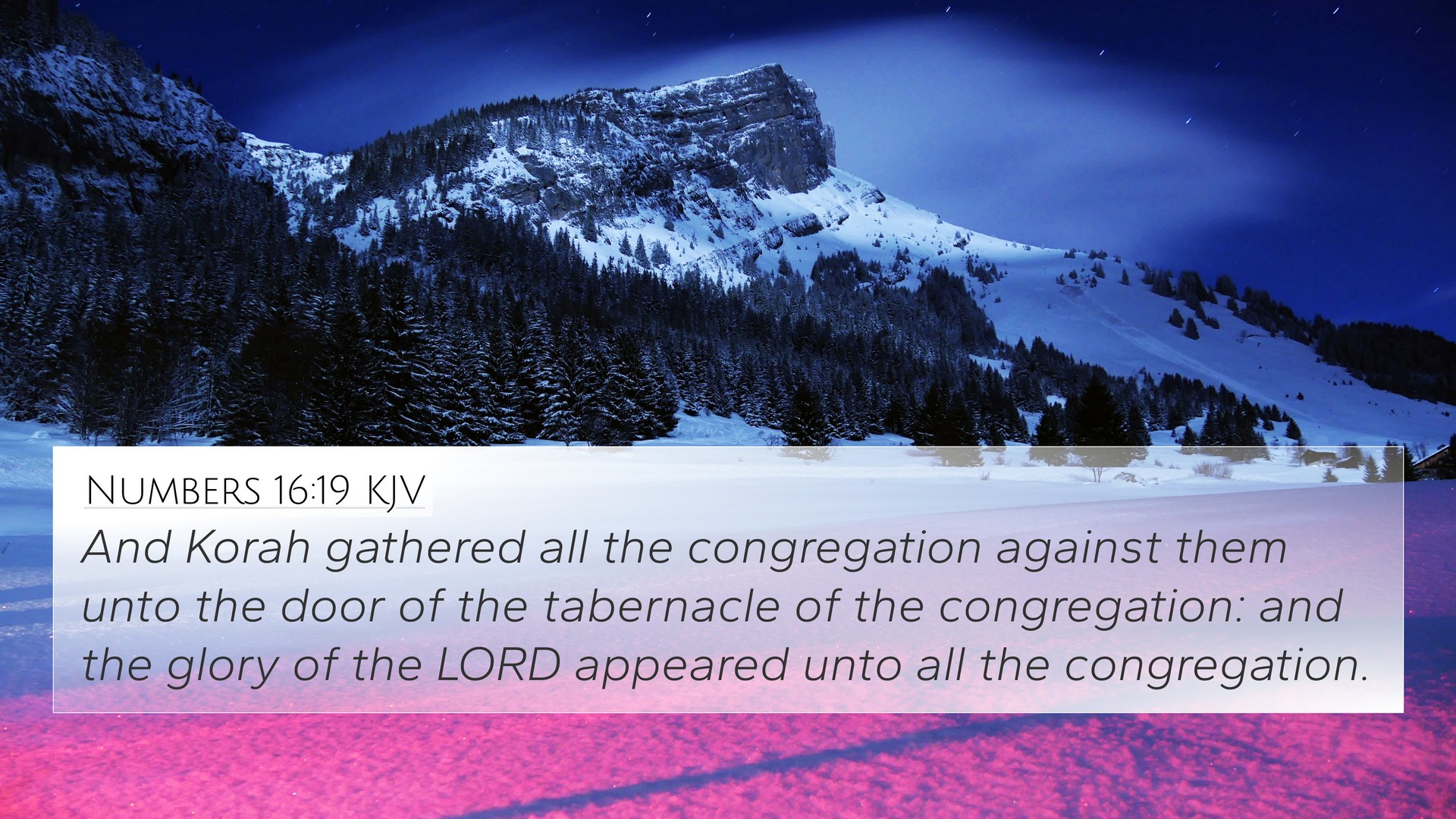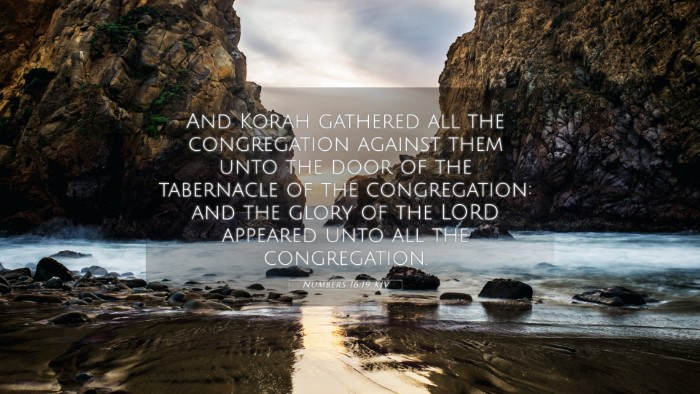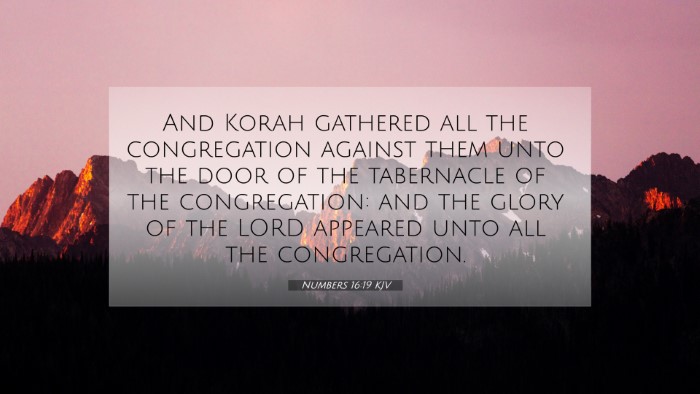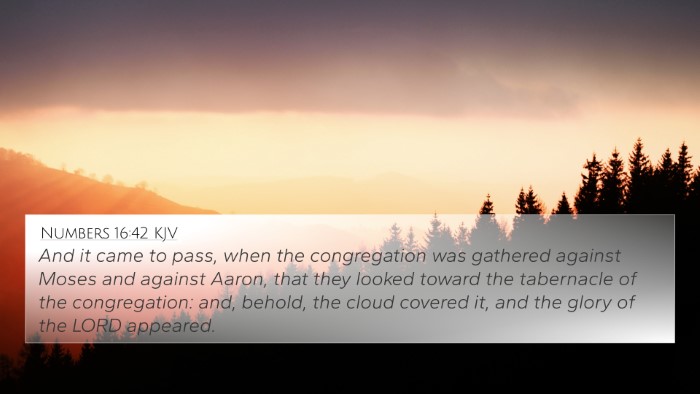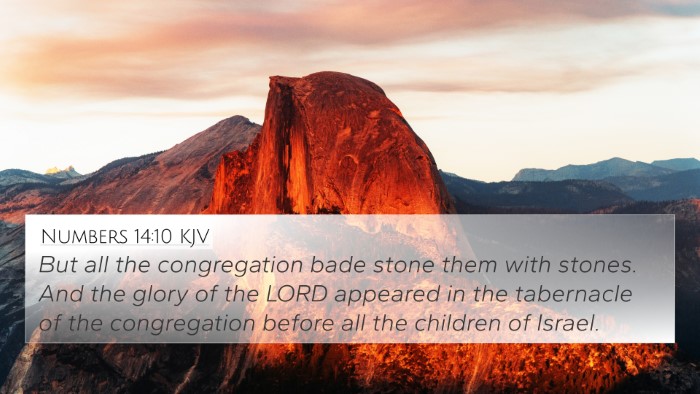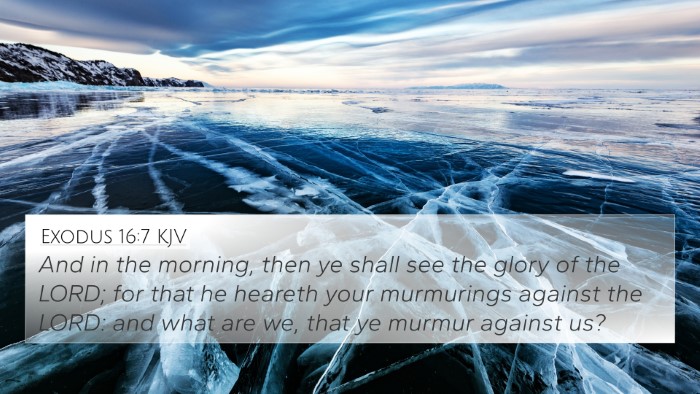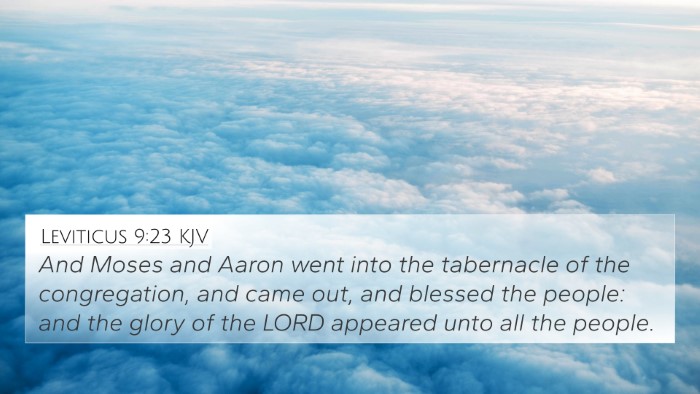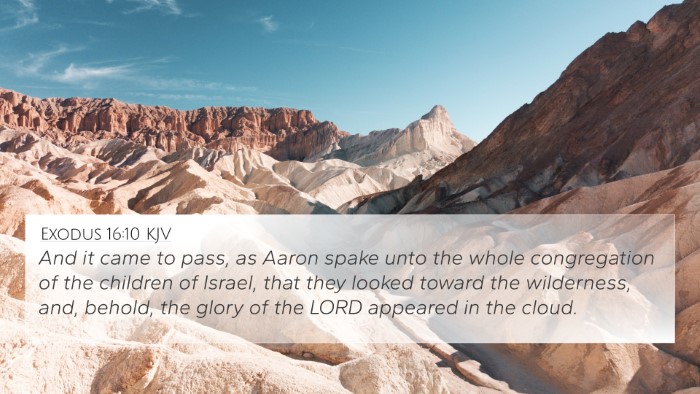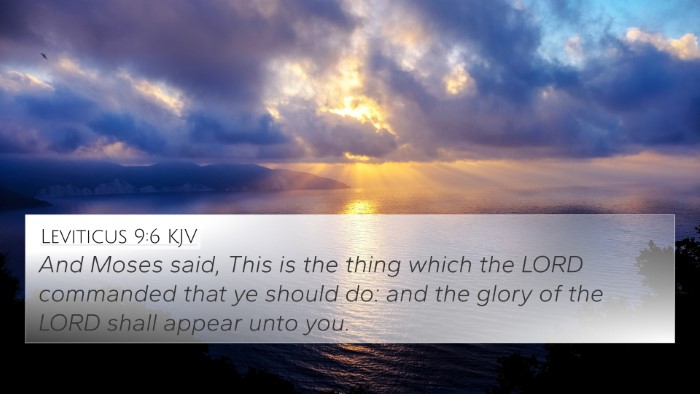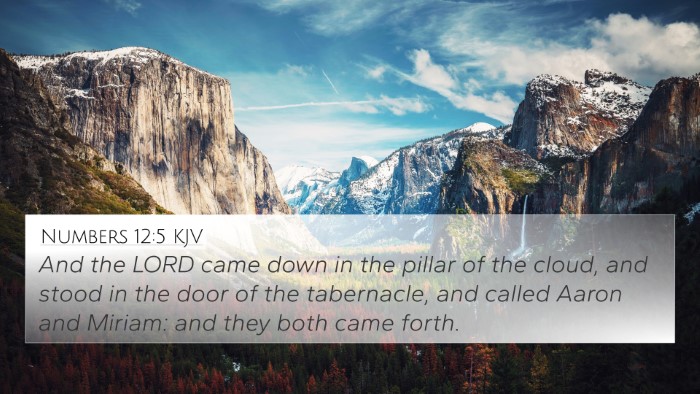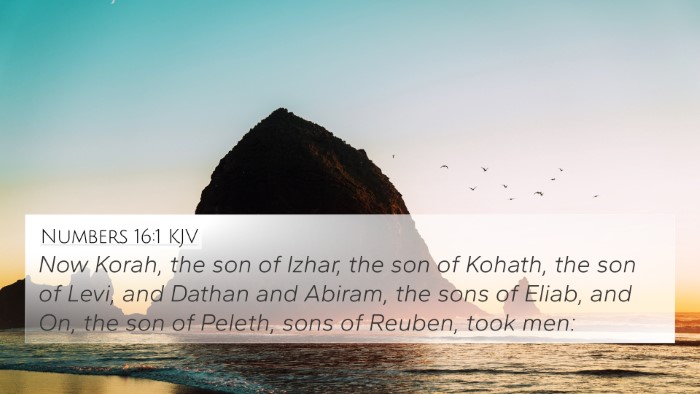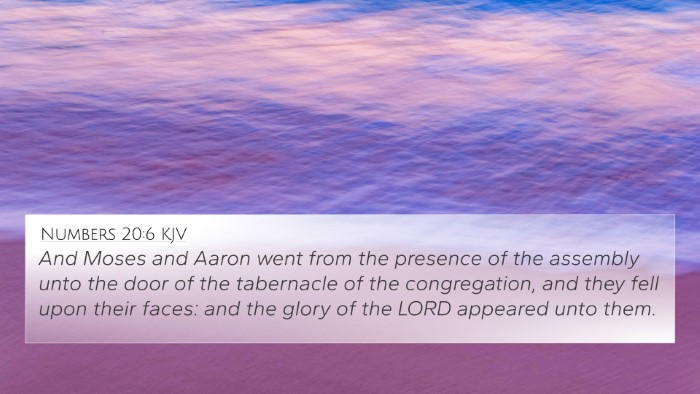Understanding Numbers 16:19
Numbers 16:19 states, "And Korah gathered all the congregation against them unto the door of the tabernacle of the congregation: and the glory of the LORD appeared unto all the congregation."
Summary of Context
This verse is situated within a narrative describing the rebellion of Korah against Moses and Aaron. Korah, along with Dathan and Abiram, challenged Moses' leadership, claiming a form of equality with the established authority.
Interpretation Insights
From the perspectives of Matthew Henry, Albert Barnes, and Adam Clarke, we can derive the following interpretations:
-
Matthew Henry: Korah's rebellion symbolizes the pride and madness of the human heart. His gathering of the congregation signifies both a display of unity against God’s appointed leaders and an invitation to divine judgment. The appearance of God’s glory emphasizes His authority and the seriousness of the rebellion.
-
Albert Barnes: This commentary emphasizes the collective opposition Korah led against Moses, underscoring the peril of unity in sin. God’s visible glory appearing highlights that any rebellion against divine order will inevitably meet with divine retribution.
-
Adam Clarke: Clarke notes the implications of Korah's actions for future generations regarding the sanctity of the priesthood. God’s glory appearing serves as a reminder of His presence and the seriousness of rebellion against divinely appointed leaders.
Cross-References for Deeper Understanding
Below are several Bible verses that are connected thematically or contextually to Numbers 16:19:
-
Exodus 16:2-3: Discusses the murmuring of the Israelites, showcasing instances of rebellion and dissatisfaction with God’s leaders.
-
Numbers 12:2: Highlights another instance of contention against Moses, where Miriam and Aaron spoke against him.
-
Psalm 106:16-17: Reflects on the rebellion of Korah and provides a commentary on the consequences faced by those who oppose God's chosen.
-
Hebrews 10:31: "It is a fearful thing to fall into the hands of the living God," linking to the dangers of rebelling against God’s appointed order.
-
Jude 1:11: References the rebellion of Korah as an example of those who perish in their destruction, illustrating the serious fate of those who oppose God's will.
-
Matthew 23:12: "And whosoever shall exalt himself shall be abased," connecting to Korah's prideful challenge against Moses and Aaron.
-
1 Peter 5:5: Discusses humility and the dangers of pride, relevant to the motivations driving Korah's rebellion.
Thematic Connections and Insights
The events in Numbers 16:19 beautifully illustrate the overarching biblical themes of authority, rebellion, and divine judgment. The theme of divine authority is present throughout the text, reminding readers that God appoints leaders and expects obedience from His people.
The rebellion led by Korah draws parallels with later New Testament teachings on humility and submission. In analyzing the connections between Old and New Testament verses, we see a consistent message about the importance of respecting God's appointed leaders and recognizing His authority.
Conclusion: The Importance of Cross-Referencing
Understanding Numbers 16:19 in light of its cross-references not only aids in grasping its immediate context but also enriches our overall understanding of biblical themes. Utilizing tools for Bible cross-referencing helps trace these themes back and forth between scripture, further emphasizing the consistency of God’s word and the seriousness of His commands.
For those interested in Bible cross-reference guides and comprehensive Bible cross-reference materials, engaging in cross-referencing Bible study methods can illuminate your study experience and deepen your understanding of scripture.
